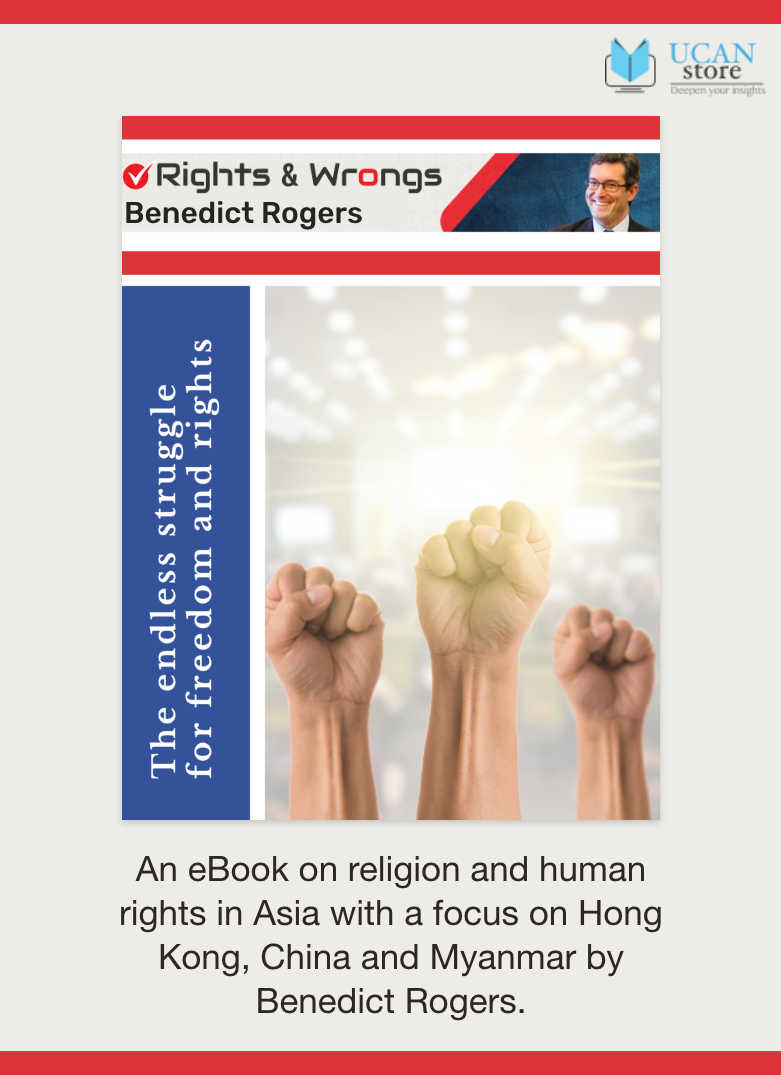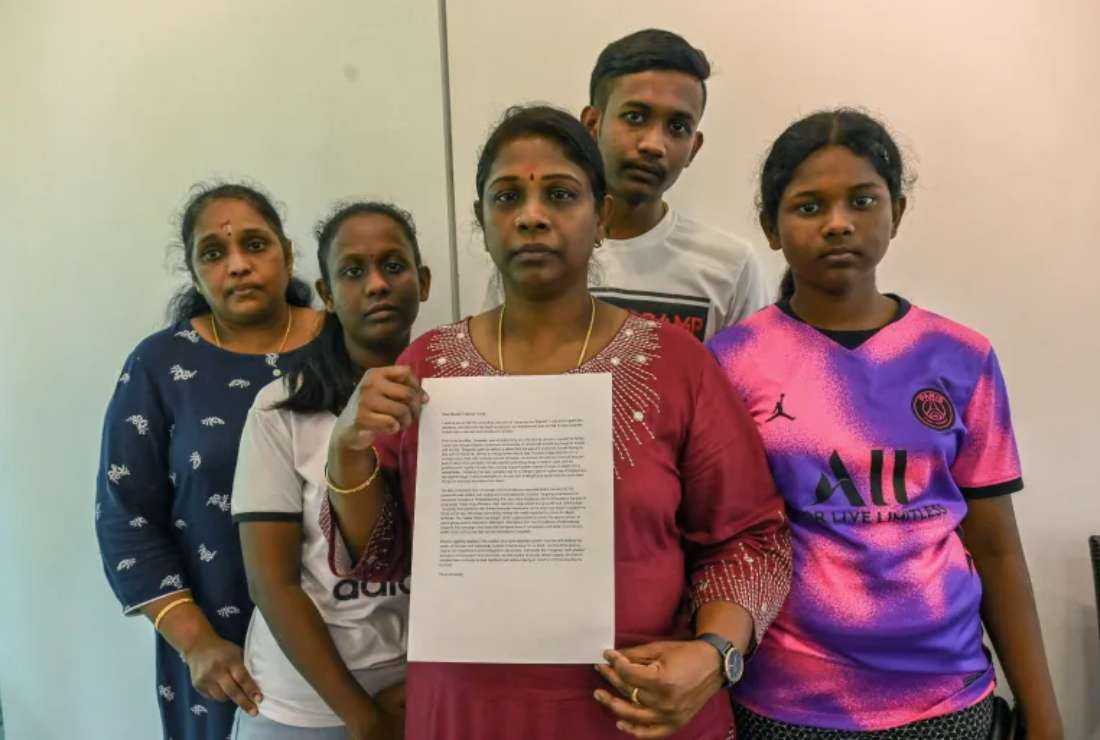
Singapore executed 11 individuals for drug-related offenses in 2022

Leelavathy Suppiah (center), sister of Tangaraju Suppiah, holds a letter to the Singaporean president appealing for clemency. (Photo: Roslan Rahman/AFP)
An international rights group has called upon the Singapore government to halt the impending execution of a man convicted of drug trafficking and urged the repeal of the death penalty in the country.
In a press statement on April 24, the Paris-based International Federation for Human Rights (FIDH) condemned the Singapore government’s use of the death penalty for drug-related offenses which do not meet the threshold of the “most serious crimes.”
“FIDH reiterates its condemnation of the Singaporean government’s ongoing imposition of the death penalty, in particular for offenses that do not meet the threshold of the most serious crimes,” the group said.
The group’s statement comes as the authorities prepare for the execution of Tangaraju Suppiah, a 46-year-old Singaporean convicted of Cannabis trafficking at Singapore’s Changi Prison, on April 26.
The Singapore Prison Service on April 19 informed Suppiah’s family about the date of his execution.
The Singapore High Court had found him guilty of abetting an attempt to traffic approximately 1 kg of cannabis into the country and sentenced him to death.
Reportedly, he was convicted based on the court’s finding that a phone number used to coordinate the delivery of cannabis belonged to him. Suppiah pleaded not guilty.
In August 2022, Suppiah and 23 other death row inmates filed a joint petition in the Court of Appeal seeking a review of their death sentences which was dismissed by the court.
Suppiah's family members have pleaded to Singapore’s President Halimah Yacob for clemency.
Adilur Rahman Khan, secretary-general of the group urged the government to align its drug laws and policies with international laws and standards.
“The Singaporean authorities’ continued use of the death penalty as part of their war on drugs is utterly reprehensible. The Singaporean government must immediately align its drug laws and policies with international human rights law and standards,” Khan said.
The group recommended that the Singapore government follow the provisions of Article 6(2) of the International Covenant on Civil and Political Rights (ICCPR).
According to the UN rights covenant, countries that have not abolished the death penalty can impose the sentence only for the most serious of crimes.
The group pointed out that the “United Nations jurisprudence has repeatedly and unequivocally stated that drug-related offenses do not meet such threshold.”
The group further reiterated its “strong opposition to the death penalty for all crimes and in all circumstances.”
Singapore has one of the most stringent punishments for drug trafficking in the region as the government considers drugs as dangerous substances that can kill many people and destroy many lives.
The government justifies the killing of those who bring drugs onto its soil on the ground that it saves a greater number of lives under the Misuse of Drugs Act 1973.
In Singapore, trafficking of drugs more than a certain amount invites the mandatory death sentence. For heroin, that amount is half an ounce, and for cannabis, just over one pound.
In 2022 alone, the country executed 11 individuals, all of whom had been found guilty of drug-related offenses. Official data shows it was the second-highest number of executions recorded in one year since 2007.
According to Amnesty International, there were 579 executions in 18 countries in 2021, an increase of 20 percent from the 483 recorded in 2020.
Most known executions took place in China, Iran, Egypt, Saudi Arabia, and Syria.
Amnesty labels China as the world’s leading executioner. However, the true extent of its use of the death penalty is unknown as the data is considered a state secret by the Chinese Communist Party.
Help us keep UCA News independent
The Church in Asia needs objective and independent journalism to speak the truth about the Church and the state.
With a network of professionally qualified journalists and editors across Asia, UCA News is just about meeting that need. But professionalism does not come cheap. We depend on you, our readers, to help maintain our independence and seek that truth.
A small donation of US$2 a month would make a big difference in our quest to achieve our goal.

Share your comments